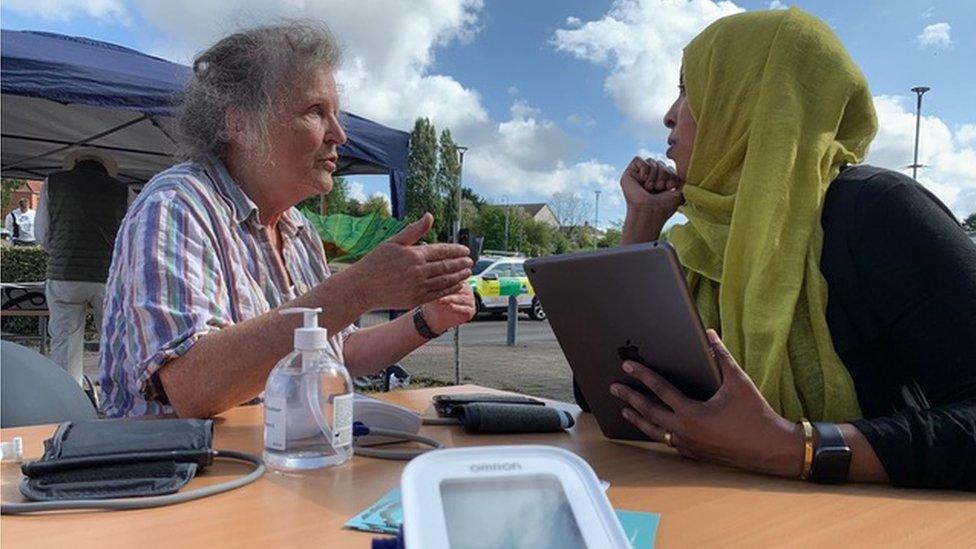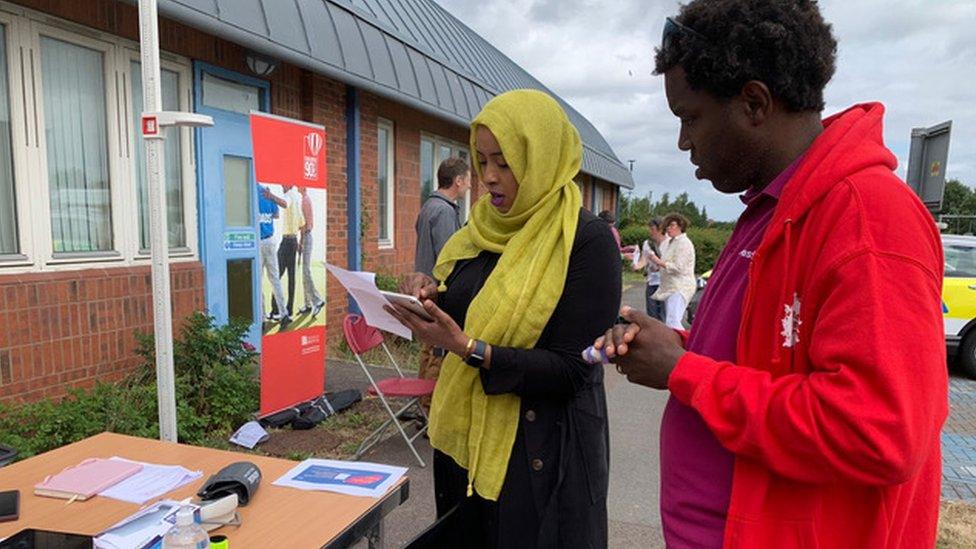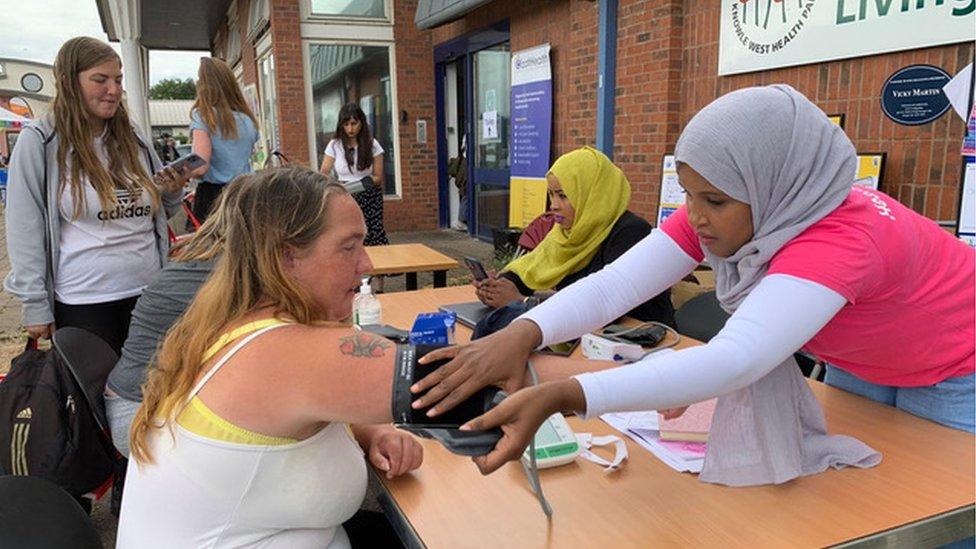Marginalised Bristol groups offered tailored health advice
- Published

The free event takes place at Bristol Beacon on 8 October
People from ethnic minority and marginalised community groups are being offered advice on health issues that disproportionately affect them.
Bristol Community Health Day will see grassroots health groups, together with the NHS, address a range of conditions.
Attendees can join practical workshops, including learning about blood sugar checks, weight and blood pressure.
"We want to be the change in health equality that we want to see," said organiser Primrose Granville.
"The impact of Covid-19 has been disproportionately felt by ethnic, minority and marginalised communities and has exposed the existing gap.
"Holding the Bristol Community Expo is a positive, first step that will empower people and hopefully initiate that change," said Ms Granville, who is from the Bristol African Caribbean Expo.
People from Bristol's African, African Caribbean, Caribbean, Asian, Disabled and LGBTQ+ communities are all invited to attend Saturday's free event at Bristol Beacon.

The event is being sponsored by Genomics England, a publicly-owned body that leads the world in genomic medicine

NHS research has highlighted ethnic health inequalities in the UK. The key findings include, external:
Black women are four times more likely to die during childbirth
South Asians have a 40% higher death rate from congenital heart defects
South Asian and Black people are up to four times more likely to develop type 2 diabetes
Afro-Caribbean men are up to three times more likely to develop prostate cancer
Black and ethnic minority people are up to twice as more likely to die from Covid-19
South Asian and Black people are eight times more likely to be subjected to a Community Treatment Order
Source: NHS Race & Health Observatory

Dr Maxine Mackintosh, programme lead for diversity at Genomics England said: "The health inequality gap is highlighted by the fact that there is a 20-year difference in life expectancy between the richest and poorest in our society.
"Our involvement in this event is one of many grassroots initiatives we are putting into place to help address these unacceptable inequalities by engaging and working with all communities across our country."
Topics being covered include diabetes, heart and lung health, Covid-19, sexual health, fertility, cancer, mental health, blood and organ donation, and palliative care.

Consultant respiratory physician for North Bristol NHS Trust, Huzaifa Adamali, said: "We undertook a similar project in Northolt for 15,000 individuals and were able to undertake dental checks, diabetes checks, cardiovascular screening, women and men cancer awareness and importantly addressed mental health care issues.
"Interestingly, 2% of the people screened on the day had severe diabetes - a condition they didn't previously know they had."
After a check-up - and if further investigation is needed - attendees will be issued with a 'health passport' containing information that can be passed onto their GPs.

Follow BBC West on Facebook, external, Twitter, external and Instagram, external. Send your story ideas to: bristol@bbc.co.uk , external